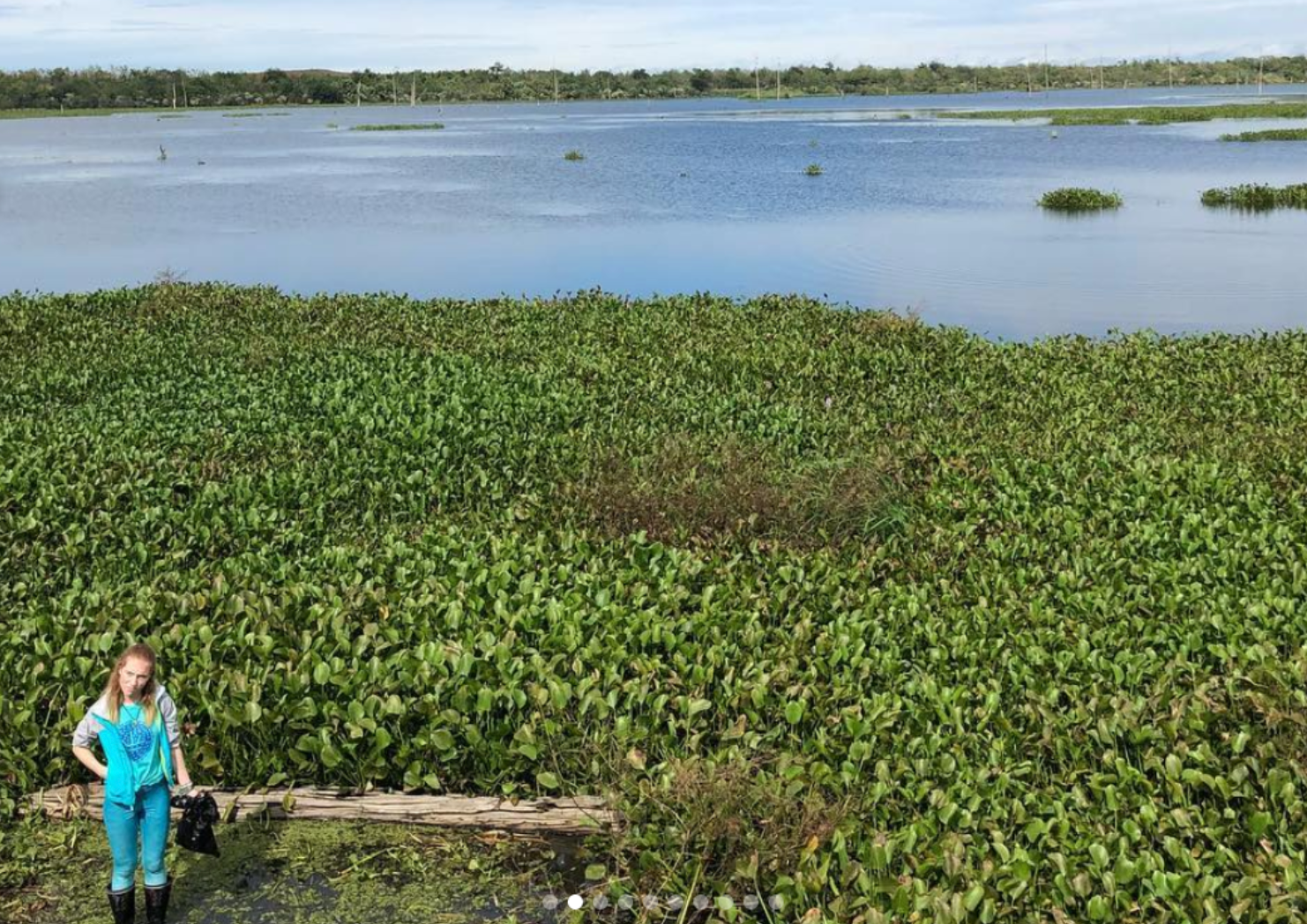Hope, empowerment, and saving the planet at New Harmony High
At this school, environmental studies isn’t an elective. It’s the school ethos.
New Orleans might be the party capital of the U.S., but all that fun can leave a serious hangover for the environment. Littering is a major problem in the city, especially in the tourist areas.
One high school student is trying to change that.
“During Mardi Gras they have to power-hose the streets, and all those plastic beads get stuck in the drains and cause flooding. It’s really bad,” said Nalani Schibner, a ninth grader at New Harmony High. “And it’s not just during Mardi Gras — there’s so much trash here. People just aren’t educated about it.”
For a school project, Nalani is creating an exhibit encouraging New Orleans residents and visitors to recycle. She’s planning to make stickers for garbage cans showing what’s recyclable, what’s compostable, and what belongs in a landfill.
Nalani has plenty of company among her classmates. Every student at New Harmony, an XQ Super School, is learning about the environment, especially as it affects their hometown of New Orleans. In fact, sustainability is woven into every aspect of the school curriculum and culture. All students at take a class called environmental awareness and make regular excursions to local bayous, lakes, and rivers. They recycle, compost and repurpose food, and make art projects with single-use plastics. And they learn the chemistry, physics, and math behind hurricanes, sea-level rise, and other aspects of climate change.
“I’m trying to expose the students to as many areas, as many nooks and crannies, of environmental science as I can,” said Fernando Wagner, New Harmony’s environmental awareness teacher.
“Louisiana has a unique ecosystem and it’s slipping through our fingers,” he added. “The marshes, the bayous, the Mississippi River, the Gulf of Mexico — they’re not just ecosystems, they’re livelihoods. We want to celebrate it but also protect it.”
On the first day of class, Wagner asked his students, “How is a river like a hose?” Students brainstormed about the source and flow of water, and how it’s used for agriculture and other human needs.
The next day he asked, “If you turned off the Mississippi, what would happen?”
That triggered a lengthy discussion about levees, dams, sediment diversions, water tables, soil types, and flood plains. From there, it was an easy jump to drought, sea-level rise and flooding, and how human activities may cause those phenomena.
“Students always ask, why do we have to do this? But at the end of the class, they always complain they don’t have enough time to answer the questions,” Wagner said. “That’s a great sign — it means they’re having fun, they want to keep going further in-depth.”
He lets students’ own curiosities dictate some lessons. One student was interested in bats, for example, which led to a discussion about echolocation, which led to speciation, which in turn led to human athletic ability — why some people are better at sports than others, and how that connects to bats’ hunting abilities.
Another student was curious about reindeer and was surprised to learn that reindeer are domesticated in some parts of the world. That led to a lesson about animal domestication generally and its impact on humans and the planet.
One especially popular lesson was on carbon footprints. Using an online calculator, students answered questions about their diet, how they get to school, and other lifestyle choices, and then compared their individual carbon footprints with the state, national, and global averages.
They learned that eating less meat, shopping less, and riding the bus (instead of driving) are great ways to reduce energy consumption. They also learned how to advocate for policies that promote energy and water conservation.
But perhaps the most important benefit, Wagner said, was that students felt a little less helpless in the face of global climate change. After all, their generation will experience the brunt of the impact, and every year the stakes only increase.
“I want them to feel productive and hopeful and have conversations, and ultimately take action,” he said. “I see my role as generating student interest in the world around them, nourish their curiosity, see a little light bulb go off, give them the tools, and let them go.”
Nalani doesn’t need convincing. She loves her city and wants to see it cleaner and greener.
“People say, it’s not a big deal — the earth is always going to be here. I say, ‘Yeah, the earth will be here, but we won’t be if this keeps happening,’ ” she said. “I get really fired up about the topic, really passionate … I really want to do something.

